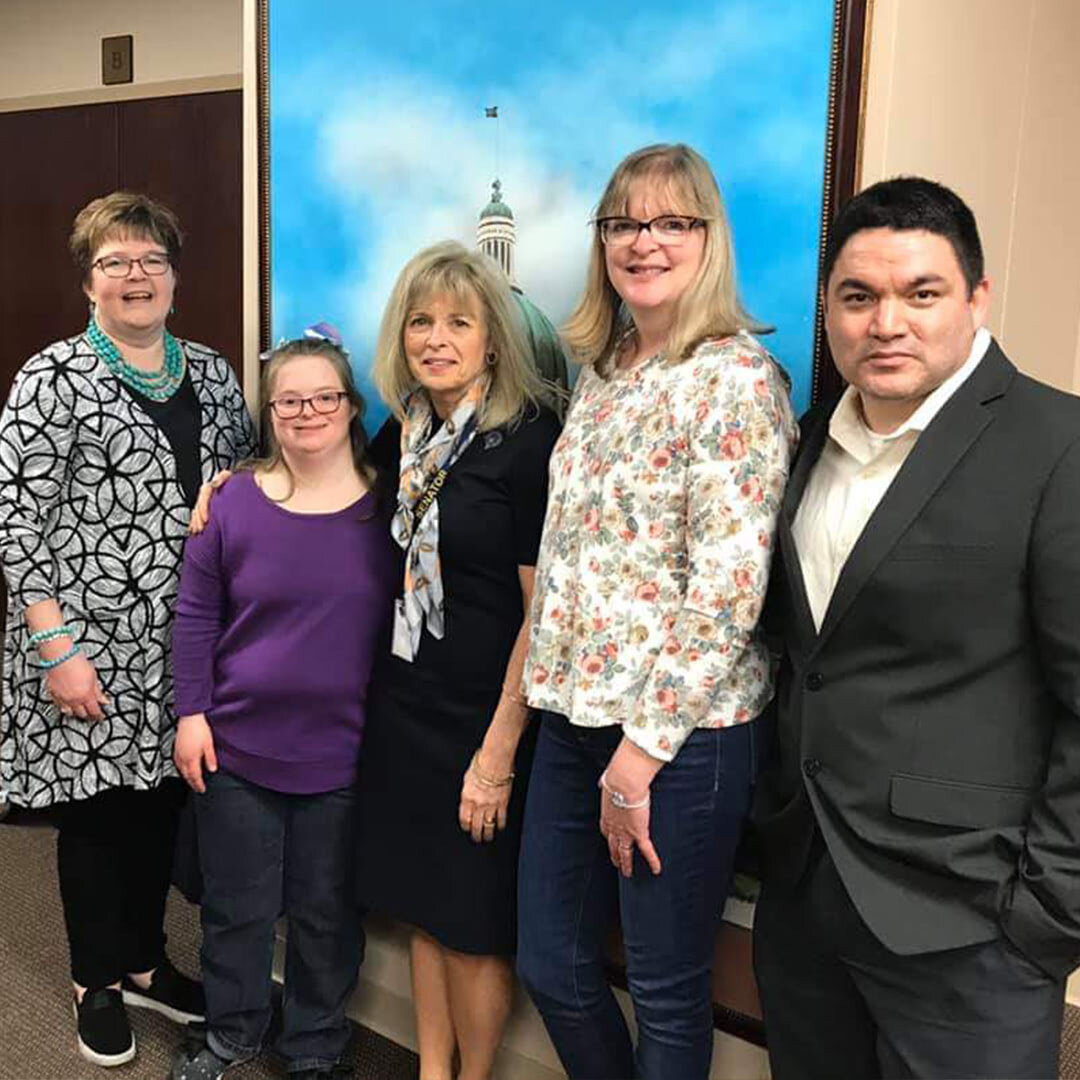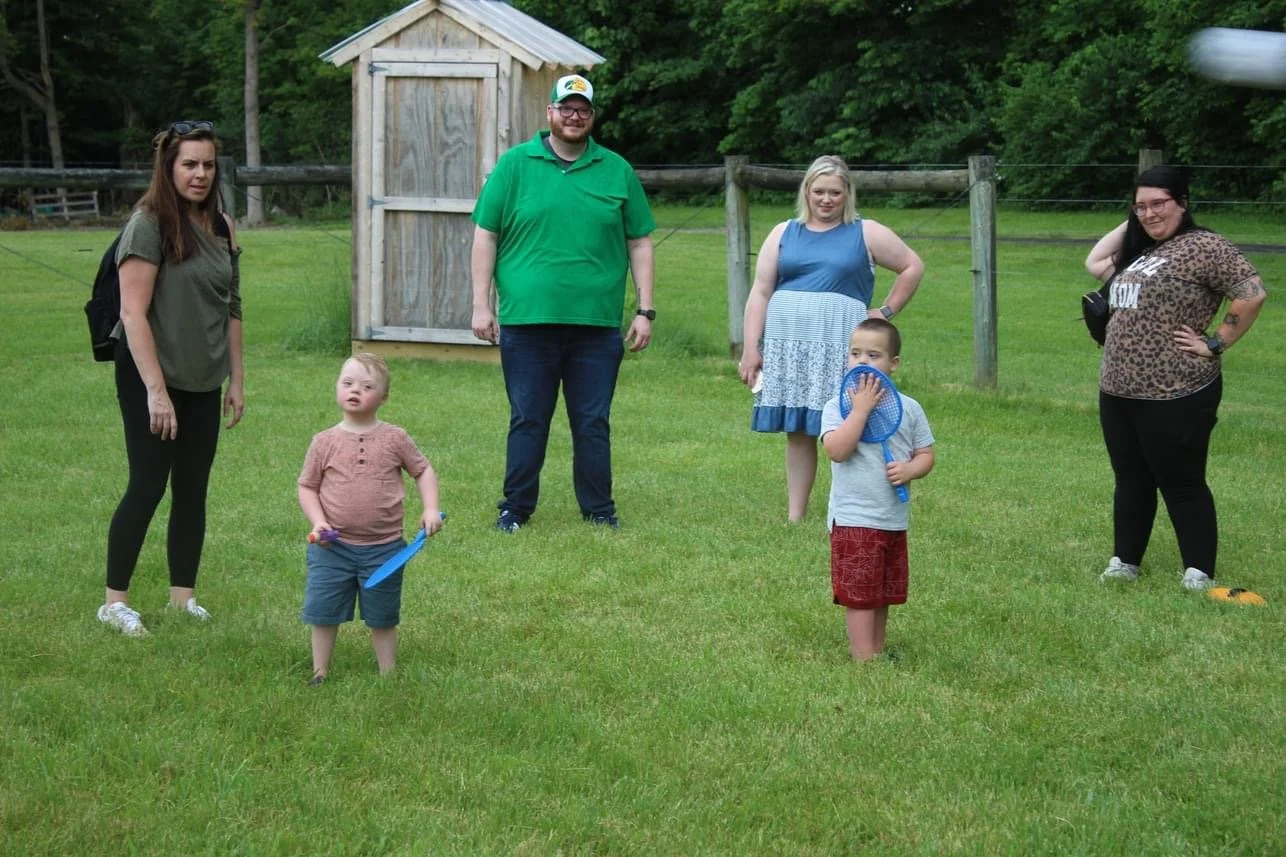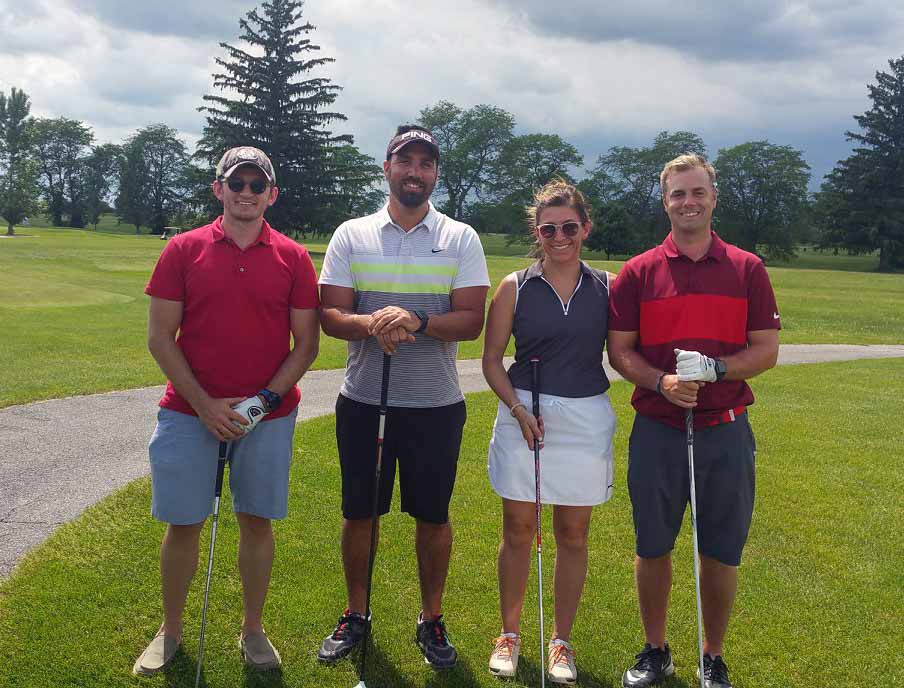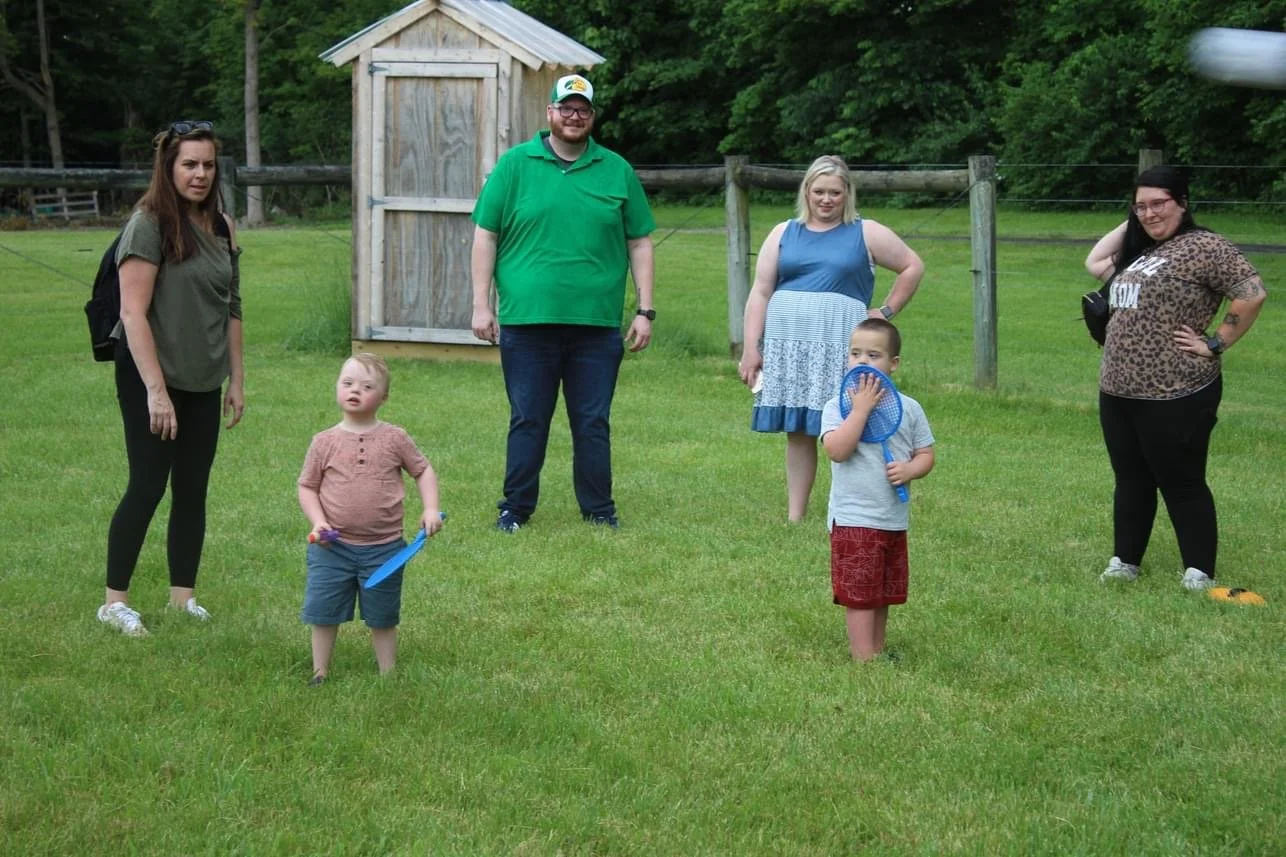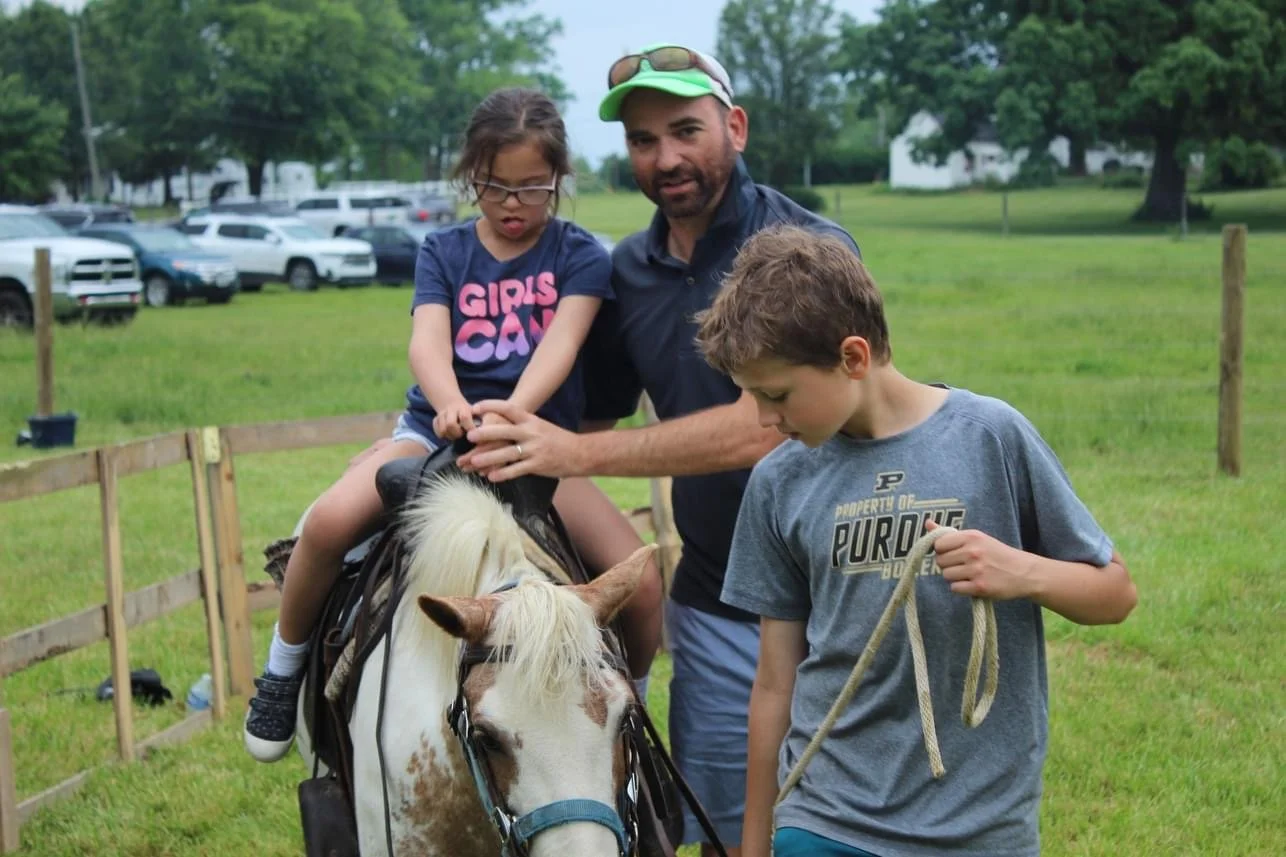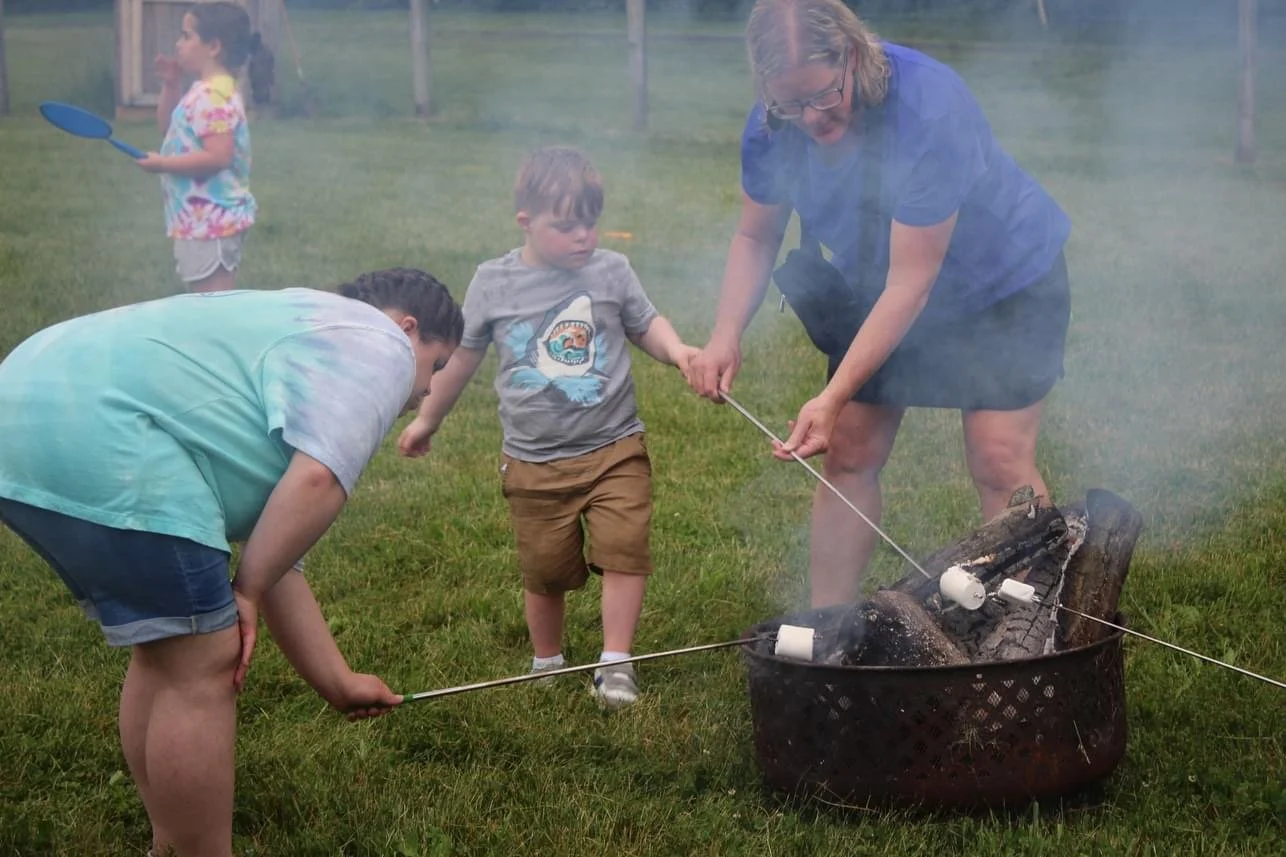We understand that learning about Down syndrome, whether during pregnancy or after your baby is born, can bring a mix of emotions. You might be feeling overwhelmed, curious, or even a little frightened. That's why we at the Down Syndrome Association of Northeast Indiana (DSANI) have created this guide to help you understand how to tell if an infant has Down syndrome. Our goal is to provide clear and factual information compassionately, empowering you to navigate this journey confidently.
At DSANI, we're dedicated to supporting families and individuals with Down syndrome throughout their lives. We offer a wide range of resources for Down syndrome, from Down syndrome support groups and educational programs to fun community events like our annual Buddy Walk. Whether you're seeking information, connection, or simply a helping hand, we're here for you every step of the way. If you're looking for Down syndrome support or want to learn more about our Down syndrome association, we encourage you to explore our website or contact us directly.
What is Down Syndrome? (And Why Early Detection Matters)
Down syndrome is a genetic condition that occurs when a person is born with an extra copy of chromosome 21. This extra chromosome changes how the body and brain develop, which can lead to physical and intellectual challenges. There are three types of Down syndrome:
Trisomy 21 (where every cell has an extra chromosome).
Translocation Down syndrome (where part of chromosome 21 is attached to another chromosome).
Mosaic Down syndrome (where some cells have the extra copy while others don't).
Many people wonder, "Down syndrome how is it inherited?" It's important to understand that in most cases, Down syndrome is not inherited. It's usually caused by a random event during the formation of the sperm or egg cell. This also helps explain why people often ask, "Why do people with Down syndrome look alike?" The extra chromosome 21 leads to some shared physical characteristics.
Early detection of Down syndrome is crucial because it allows families to access Down syndrome support and resources for Down syndrome as soon as possible. Early intervention services, such as speech therapy, occupational therapy, and physical therapy, can play a significant role in helping children with Down syndrome reach their full potential.
At the Down Syndrome Association of Northeast Indiana (DSANI), we provide various resources and programs for individuals with Down syndrome and their families. We can help you develop a personalized plan to address your child's unique needs and connect you with a supportive community. We also offer Down syndrome programs for adults, ensuring continued support and opportunities throughout life.
Physical Traits of Infants with Down Syndrome: What to Look For
When trying to determine how to tell if an infant has Down syndrome, certain physical characteristics can be indicative. It's important to remember that not all babies with Down syndrome will have all of these traits, and some babies without Down syndrome may have one or more of them. However, when presented together, these features can be a sign to seek further evaluation from a medical professional.
Some common physical traits associated with Down syndrome include:
Facial Features: Babies with Down syndrome often have a flattened facial profile, a small nose, and upward-slanting almond-shaped eyes.
Eye Characteristics: Brushfield spots, which are small white spots on the colored part of the eye (iris), are sometimes present.
Hands and Feet: A single deep crease across the palm (palmar crease) is a common characteristic. Babies with Down syndrome may also have small hands and feet with short fingers and a wider than usual space between the big toe and second toe.
Low Muscle Tone (Hypotonia): Many babies with Down syndrome have low muscle tone, which can make them appear "floppy." This can affect their ability to hold their head up, sit up, and reach for objects.
It's natural to wonder, "Why do people with Down syndrome look alike?" The presence of an extra copy of chromosome 21 affects the development of various physical features, leading to some shared characteristics among individuals with Down syndrome.
Talking to your pediatrician is important if you notice some of these physical traits in your baby. They can perform a thorough examination and, if necessary, recommend genetic testing to confirm a diagnosis. Remember, we at the Down Syndrome Association of Northeast Indiana are here to provide Down syndrome support and connect you with a community of families who understand.
Developmental Signs of Down Syndrome: Milestones to Watch
In addition to physical characteristics, developmental milestones can provide clues in understanding how to tell if an infant has Down syndrome. Babies with Down syndrome may experience delays in reaching certain milestones, such as rolling over, sitting up, crawling, and walking. These delays are often related to low muscle tone (hypotonia), which is common in infants with Down syndrome.
While every child develops at their own pace, here's a general idea of how developmental milestones may be affected in babies with Down syndrome:
Rolling over: While typically developing babies often start rolling around 4-6 months, babies with Down syndrome may achieve this milestone a bit later.
Sitting up: Sitting independently usually occurs around 6-8 months for typically developing babies. For babies with Down syndrome, this may happen closer to 9-12 months.
Crawling: Most babies begin crawling between 7-10 months. Babies with Down syndrome may start crawling later, sometimes closer to a year old or beyond.
Walking: While many babies take their first steps around their first birthday, babies with Down syndrome may start walking between 18 months and 2 years old.
Beyond motor skills, developmental delays in babies with Down syndrome can also affect other areas, such as speech and language development, fine motor skills (using hands and fingers), and feeding.
At DSANI, we understand that navigating these developmental differences can be challenging. That's why we offer Down syndrome help groups and resources like our Infant-Toddler Playgroup, designed to provide a supportive and stimulating environment for children with Down syndrome from birth to age 4. Our playgroups foster social interaction, play-based learning, and developmental support, helping your child thrive. We also encourage you to explore other organizations for Down syndrome that offer Down syndrome programs for adults.
If you have concerns about your baby's development, don't hesitate to contact your pediatrician. They can assess your child's progress, provide guidance, and recommend early intervention services.
Prenatal Testing and Diagnosis of Down Syndrome
Even before birth, there are ways to determine if a baby has Down syndrome. Prenatal screening and diagnostic tests can help identify pregnancies where the baby may have an extra copy of chromosome 21. While these tests can provide valuable information, discussing the benefits and limitations with your doctor or a genetic counselor is important to make informed decisions about your pregnancy.
Here are some of the prenatal tests available:
Screening Tests: These tests estimate the chance of a baby having Down syndrome. They include blood tests that measure certain markers in the mother's blood and ultrasound exams, such as the nuchal translucency test (which measures the fluid behind the baby's neck).
Diagnostic Tests: These tests provide a more definitive diagnosis of Down syndrome. They include chorionic villus sampling (CVS), which takes a sample of placental tissue, and amniocentesis, which takes a sample of amniotic fluid. Another option is cell-free DNA testing, a blood test that analyzes fragments of fetal DNA in the mother's bloodstream.
It's important to note that screening tests don't provide a definite diagnosis, while diagnostic tests carry a small risk of miscarriage. Your healthcare provider can help you understand how many types of Down syndrome there are and which tests are most appropriate for you based on your individual circumstances and risk factors. Many Down syndrome organisations also offer resources and support to help expectant parents navigate prenatal testing and decision-making.
If you are facing a prenatal diagnosis of Down syndrome, we understand this can be a challenging time. The Down Syndrome Association of Northeast Indiana is here to provide support and information to expectant parents. Our New & Expectant Parent Outreach Program offers resources, guidance, and connections with other families who have experienced a similar journey. We can also help you understand what Down syndrome life expectancy is like today, thanks to advances in medical care and support services.
Next Steps After Diagnosis: Support and Resources Available
Receiving a diagnosis of Down syndrome for your child, whether prenatally or after birth, can bring a wave of emotions. It's important to remember that you are not alone. A wealth of support and resources is available to help you navigate this journey and provide the best possible care for your child.
One of the first steps after a diagnosis is to connect with your child's pediatrician. They can provide guidance on early intervention services, which are crucial for supporting your child's development. These services may include physical therapy, occupational therapy, speech therapy, and early childhood education programs.
Seeking out a Down syndrome center, if available in your area, can also be incredibly beneficial. These centers often provide comprehensive care, including medical specialists, therapists, and support groups, all in one location.
Connecting with other families who have children with Down syndrome is an invaluable source of support. Down syndrome help groups provide a safe space to share experiences, ask questions, and learn from others who understand. The Down Syndrome Association of Northeast Indiana offers a variety of Down syndrome groups for parents, siblings, and grandparents, creating a strong community of support.
We also encourage you to explore other Down syndrome foundations and organizations for Down syndrome, such as the National Down Syndrome Society (NDSS), which offers a wealth of information, resources, and advocacy support. At DSANI, we can help you create a personalized plan for your child's development and connect you with the services and support you need.
Celebrating Down Syndrome Awareness and Advocacy
October is Down Syndrome Awareness Month, a time to celebrate the lives and achievements of people with Down syndrome and to promote understanding and acceptance. It's an opportunity to challenge stereotypes, advocate for inclusion, and raise awareness about the abilities and contributions of individuals with Down syndrome.
What is Down Syndrome Day? It's a global event observed on March 21st (chosen for the triplication of the 21st chromosome) to raise awareness and advocate for the rights of people with Down syndrome.
How to celebrate Down Syndrome Awareness Month? There are many ways to get involved!
Educate yourself and others: Learn more about Down syndrome and share your knowledge with friends, family, and colleagues.
Attend events: Participate in walks, conferences, or other events organized by local Down syndrome organizations like DSANI.
Show your support: Wear blue and yellow, which are associated with Down syndrome awareness.
Spread the word on social media: Share stories, facts, and resources using the hashtag #DownSyndromeAwarenessMonth.
Support DSANI: Participate in our annual Buddy Walk, a fun and inspiring event that brings the community together to celebrate Down syndrome and raise funds for our programs.
By raising Down syndrome awareness and advocating for inclusion, we can create a more accepting and supportive world for all individuals with Down syndrome. Join us in celebrating their unique abilities and contributions!
Frequently Asked Questions (FAQs)
We understand that you may have many questions about Down syndrome. Here are answers to some of the most common ones:
How many types of Down syndrome are there?
There are three main types: Trisomy 21 (the most common), Translocation Down syndrome, and Mosaic Down syndrome.
When was Down syndrome discovered?
Down syndrome was first described by John Langdon Down in 1866, but the genetic cause (an extra chromosome 21) wasn't identified until 1959.
How many people in the US have Down syndrome?
It's estimated that about 217,000 people in the United States have Down syndrome.
What is Down syndrome life expectancy?
Thanks to advances in medical care, the life expectancy for people with Down syndrome has increased significantly. Today, many individuals with Down syndrome live into their 50s and 60s, and some even longer.
Is Down syndrome a neurological condition?
Yes, Down syndrome has neurological effects. The extra chromosome 21 can impact brain development and function, which may lead to intellectual disabilities and learning challenges. However, with early intervention and appropriate support, individuals with Down syndrome can lead fulfilling lives and achieve their full potential.
You're Not Alone on This Journey
We hope this guide has helped you better understand how to tell if an infant has Down syndrome and the importance of early detection and support. If you suspect your child may have Down syndrome, please don't hesitate to reach out to your pediatrician for guidance and further evaluation.
At the Down Syndrome Association of Northeast Indiana, we are dedicated to providing support, resources, and a welcoming community for individuals with Down syndrome and their families. Whether you're seeking information, connecting with other families, or looking for ways to get involved in Down syndrome awareness and advocacy, we're here for you every step of the way.
We invite you to explore our website to learn more about our programs, down syndrome support groups, and upcoming events like our annual Buddy Walk. Together, we can create a more inclusive and supportive world for all individuals with Down syndrome.










